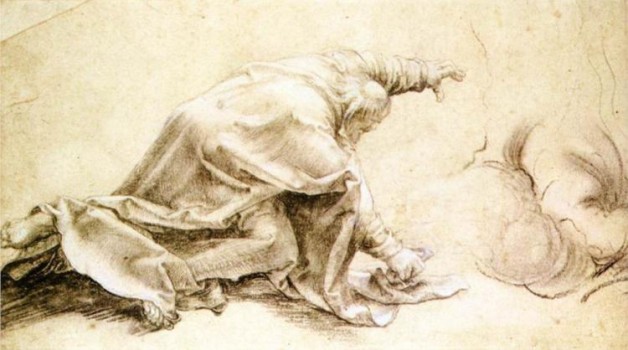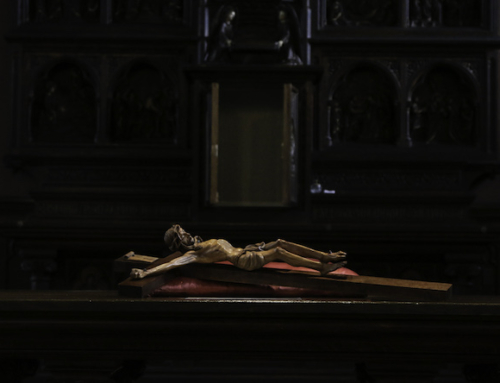While Jesus was praying on the mountain, his appearance suddenly changed and his clothes became dazzling white. At that moment two men appeared and began to have a conversation with Jesus: none other than Moses and Elijah themselves. Luke is the only Gospel writer to inform his audience about the topic of discussion between the three men. He says that these men “appeared in glory and spoke of his exodus” (Lk 9:31). This is an interesting choice of words. The Greek word that Luke uses is exodos, meaning a departure or exit. So this reading, which we will hear in this upcoming Sunday’s Gospel, raises the question: “From what is Christ departing?”
Often an exit or departure is seen as a sad event, which can very well be the case here. However, the reference to the Exodus in this situation reminds the Jewish audience of the love and fidelity of God that brought their ancestors through the desert and into the Promised Land. Their exodus was not easy, but it brought them salvation from the cruel yoke of slavery.
The Israelites left Egypt to follow the one true God and to dwell in the Promised Land. On this mountain Jesus is speaking with the leader of this original exodus, Moses. Jesus will bring about the second exodus foretold by the prophet Isaiah, “in that day the root of Jesse shall stand as an ensign to the peoples; him shall the nations seek, and his dwellings shall be glorious. In that day the Lord will extend his hand yet a second time to recover the remnant which is left of his people” (Is 11:10–11). The original exodus was for the single nation of Israel, however this new exodus is to be for all of the nations. It is for all of humanity to depart from a life of pain, suffering, and sin and to enter into the joy and loving presence of God. The first exodus was to terminate in the Promised Land; the second exodus is to find its conclusion in the presence of God for all eternity.
We find a second connection between the exodus of Moses and the exodus of Christ: the presence and role of a cloud. In the Israelite Exodus, a pillar of cloud led the people during the day (Exod 13:21). This cloud revealed the path to the Promised Land. Once again we find that a cloud plays a role in revelation. On Mount Tabor, it is not the brightness of his garments or the radiance of his transformed countenance but it is the cloud that reveals the divinity of Jesus. “And a voice came out of the cloud, saying, ‘This is my chosen Son; listen to him.’” (Lk 9:35). Here once again a cloud reveals the way. This time it is not a path through the desert but “the Way, and the Truth, and the Life” (Jn 14:6) who is Jesus Christ.
This Gospel passage may not seem like the ideal choice for the Second Sunday of Lent. It has nothing to do with penance, ashes, or eating fish on Friday. However, if we look at the surrounding Gospel text we can see how it fits into the season of Lent. In Luke’s Gospel this passage is immediately preceded by our Lord’s exhortation to discipleship. Jesus tells his disciples, “If any man would come after me, let him deny himself and take up his cross daily and follow me” (Lk 9:23). As we embark on the second week of Lent we are reminded of the task of Christian discipleship, the daily renunciation of oneself in favor of the cross of Jesus Christ. Why the cross of this man and not the cross of countless others murdered in the same fashion? The answer to this question comes during the Transfiguration.It is the cloud that guides us through the desert of Lent: “This is my chosen Son, listen to Him” (Lk 9:35). The transfiguration reveals to us the divinity of Jesus as the “chosen son” of the Father. This strengthens our faith in Him and at the same time is an encouragement for us as we begin this season of Lent. The penances and sacrifices we make unite us to the passion and suffering of our Lord. Just as the divinity of Jesus is revealed to the three disciples before they enter Jerusalem so to we are reminded of the divinity of Christ as we are at the entrance of Lent.
✠
Image: Matthias Grünewald, An Apostle from the Transfiguration







